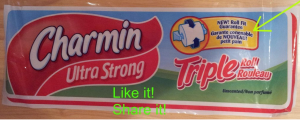I like how this video project was set up. It was helpful having all the parts broken down into separate parts so we knew all the information about Abercrombie and Fitch before the making of the video. However, I felt like making an advertisement for A&F would be a lot more fun and would allow us to be a lot more creative with the content of our video.
The filming was easy because everyone was able to pitch in their own ideas and participate, however, when it came to the actual editing of the video, I thought that was hard to divide up the work. It was a lot easier for just one person to edit the video which takes many hours to do. But thanks to Peter Zhao the video expert, it was a lot easier to understand the basics of editing the video. Without him, we would not be able to incorporate the same effects that we would want in our video.
I found the peer evaluation of other videos helpful in the way that you could see what other groups did to get an idea of what you can do for future videos. But I don’t think it added as much value as expected.
This video project is the definition of a bitter-sweet memory. During the entire process of creating this video, I can say that I was really frustrated. Learning a new program from scratch is not easy, however, after “successfully” finishing the video, I felt very satisfied. To me, I’ve learned a life-long lasting tool that I can use in the future. Overall, I have to say that I enjoyed this video project, and I believe I gained a lot more from this video project than doing another typical presentation, a skill that was already being cultivated in high school.



 For the entire duration of this commercial, no dog was to be seen. Instead a ‘sexy’ supermodel was used to depict the message they were trying to get across. In the commercial, she was unwillingly locked in a car which created an imagery of kidnap and rape, which trigged Corey Lee Wrenn, the author of the article“
For the entire duration of this commercial, no dog was to be seen. Instead a ‘sexy’ supermodel was used to depict the message they were trying to get across. In the commercial, she was unwillingly locked in a car which created an imagery of kidnap and rape, which trigged Corey Lee Wrenn, the author of the article“